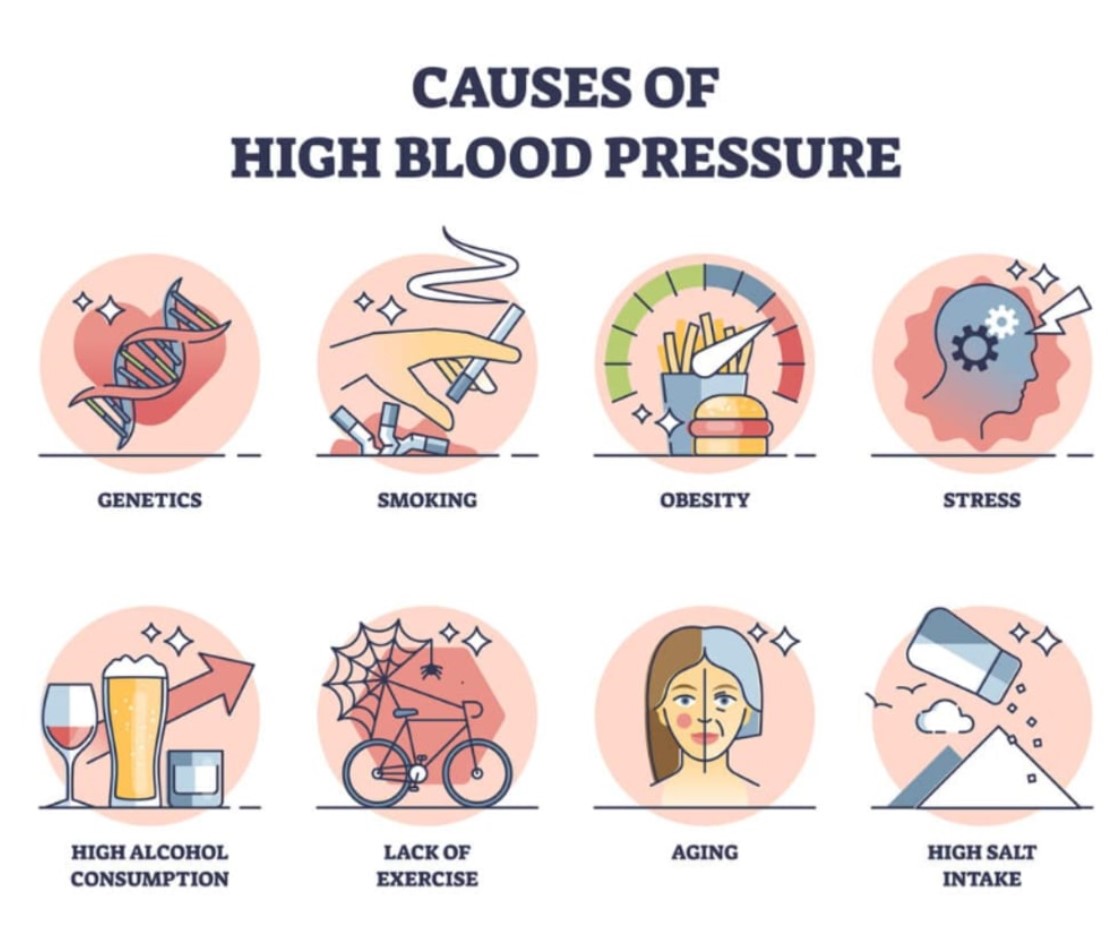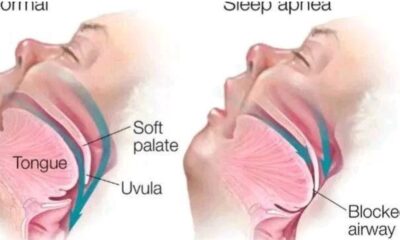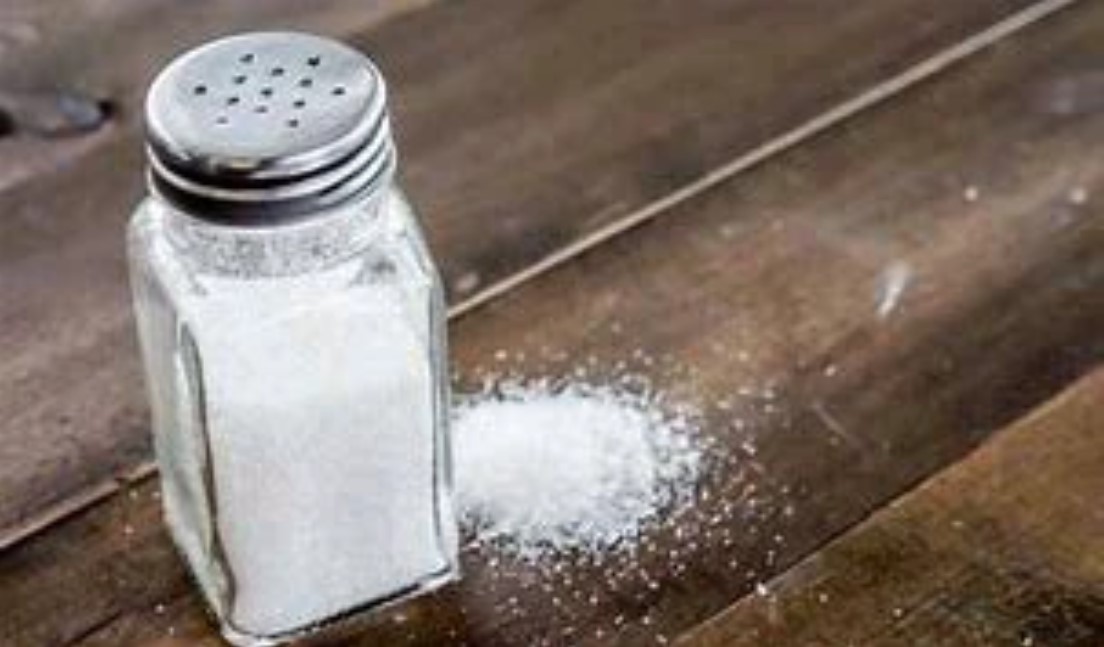### Understanding the Culprits: Main Causes of High Blood Pressure
High blood pressure, or hypertension, affects millions worldwide and is a significant risk factor for various cardiovascular diseases. Understanding its causes is crucial for effective prevention and management. Here are the primary factors contributing to high blood pressure…Click Here To Continue Reading>> …Click Here To Continue Reading>>
#### 1. **Lifestyle Factors:**
Lifestyle plays a pivotal role in blood pressure regulation. Poor dietary habits, excessive salt intake, lack of physical activity, and obesity are major contributors. High sodium levels in the diet can lead to fluid retention and increased blood pressure, while obesity strains the heart and circulatory system.
#### 2. **Genetic Predisposition:**
Family history can significantly influence one’s susceptibility to hypertension. Genetic factors often dictate how the body regulates fluids and hormones involved in blood pressure control. Individuals with a family history of hypertension should be particularly vigilant about monitoring their blood pressure.
#### 3. **Age and Gender:**
Blood pressure tends to increase with age, primarily due to changes in artery stiffness and the cardiovascular system’s overall function. Men are more likely to develop hypertension at a younger age, while women’s risk increases after menopause.
#### 4. **Chronic Stress:**
Prolonged stress can lead to temporary spikes in blood pressure. Over time, chronic stress may contribute to sustained hypertension by triggering unhealthy coping mechanisms like overeating, alcohol consumption, or smoking, all of which exacerbate blood pressure levels.
#### 5. **Underlying Health Conditions:**
Several medical conditions can elevate blood pressure levels, including kidney disease, thyroid disorders, and sleep apnea. Addressing these underlying health issues is crucial in managing hypertension effectively.
#### 6. **Alcohol and Tobacco Use:**
Excessive alcohol consumption and smoking can raise blood pressure and damage the heart over time. Both substances contribute to arterial damage and inflammation, increasing the risk of hypertension and other cardiovascular diseases.
#### 7. **Medications and Supplements:**
Certain medications, such as nonsteroidal anti-inflammatory drugs (NSAIDs), decongestants, and oral contraceptives, can elevate blood pressure. Additionally, herbal supplements and stimulants may have similar effects, highlighting the importance of discussing all medications and supplements with healthcare providers.
#### 8. **Sleep Patterns:**
Disrupted sleep patterns or untreated sleep disorders, like sleep apnea, can lead to hypertension. During sleep, the body regulates stress hormones and blood pressure, making quality sleep essential for overall cardiovascular health.
### Conclusion
While genetics and age are non-modifiable risk factors for hypertension, lifestyle modifications such as maintaining a healthy diet, regular exercise, stress management, and avoiding tobacco and excessive alcohol consumption can significantly reduce the risk. Awareness of these causes empowers individuals to make informed choices, leading to better blood pressure management and overall cardiovascular health. Regular monitoring and consultation with healthcare providers are essential for early detection and effective treatment of hypertension.
### Understanding Danger: What is Dangerously High Blood Pressure?
High blood pressure, also known as hypertension, is a prevalent condition that affects millions worldwide. While it often presents with no symptoms, untreated or uncontrolled hypertension can lead to severe health complications. Understanding what constitutes dangerously high blood pressure is crucial for timely intervention and prevention of potential health risks.
#### Blood Pressure Basics READ FULL STORY HERE>>>CLICK HERE TO CONTINUE READING>>>
Blood pressure is measured in millimeters of mercury (mm Hg) and consists of two numbers:
– **Systolic Pressure:** The top number, representing the pressure in the arteries when the heart beats.
– **Diastolic Pressure:** The bottom number, indicating the pressure in the arteries when the heart is at rest between beats.
A normal blood pressure reading is typically around 120/80 mm Hg. However, blood pressure readings can vary based on factors such as age, health conditions, and lifestyle.
#### Dangerously High Blood Pressure
Dangerously high blood pressure, often referred to as hypertensive crisis, occurs when blood pressure levels rise to a severe and potentially life-threatening range. There are two categories within hypertensive crisis:
– **Hypertensive Urgency:**
Blood pressure readings are significantly elevated (typically over 180/110 mm Hg) but without signs of acute organ damage. Urgent medical attention is necessary to lower blood pressure safely within a few hours to prevent progression to hypertensive emergency.
– **Hypertensive Emergency:**
Blood pressure levels spike to very high levels (often exceeding 180/120 mm Hg) and are accompanied by evidence of acute organ damage, such as chest pain, shortness of breath, severe headache, blurred vision, or neurological deficits. Immediate medical intervention in a hospital setting is critical to prevent complications like stroke, heart attack, or kidney failure.
#### Causes and Risk Factors
Several factors can contribute to dangerously high blood pressure, including:
– **Medication Non-Adherence:** Skipping doses or not taking prescribed medications for hypertension.
– **Underlying Health Conditions:** Such as kidney disease, heart failure, or preeclampsia during pregnancy.
– **Illegal Drug Use:** Certain drugs, such as cocaine or amphetamines, can lead to severe spikes in blood pressure.
#### Managing Dangerously High Blood Pressure
Managing dangerously high blood pressure requires prompt medical attention and intervention. Treatment may involve:
– **Hospitalization:** For close monitoring and administration of intravenous medications to lower blood pressure gradually.
– **Medication Adjustments:** Ensuring adherence to prescribed medications and adjusting dosages as necessary under medical supervision.
– **Lifestyle Changes:** Adopting a healthy diet low in sodium, regular exercise, stress management techniques, and avoiding tobacco and excessive alcohol consumption.Cardio Shield Reviews
#### Conclusion
Awareness of dangerously high blood pressure and its potential consequences underscores the importance of regular blood pressure monitoring and adherence to medical advice. Early detection and intervention can significantly reduce the risk of severe complications and improve long-term health outcomes. Consulting with healthcare providers for personalized guidance and treatment is essential in managing hypertension effectively and maintaining overall cardiovascular health.


 SPORTS11 months ago
SPORTS11 months ago
 IN-THE-NEWS6 months ago
IN-THE-NEWS6 months ago
 METRO10 months ago
METRO10 months ago
 METRO10 months ago
METRO10 months ago
 IN-THE-NEWS11 months ago
IN-THE-NEWS11 months ago
 HEALTH & LIFESTYLE6 months ago
HEALTH & LIFESTYLE6 months ago
 SPORTS10 months ago
SPORTS10 months ago
 IN-THE-NEWS10 months ago
IN-THE-NEWS10 months ago


